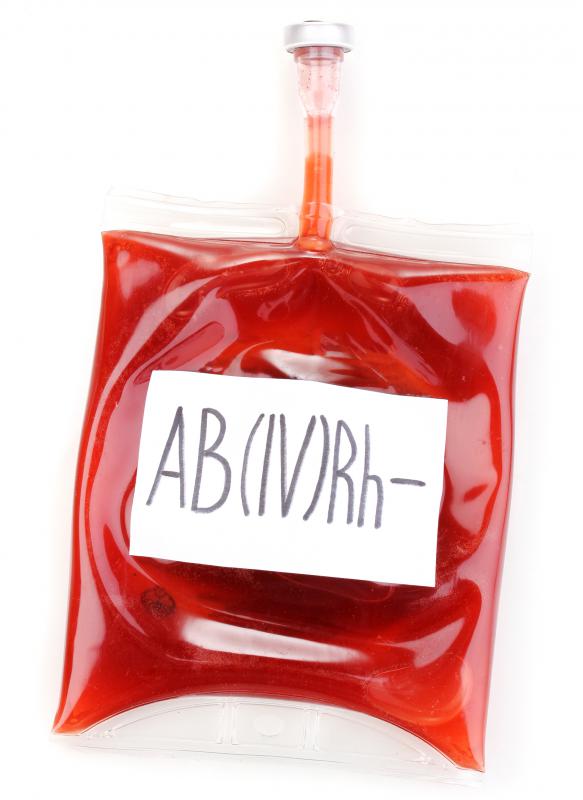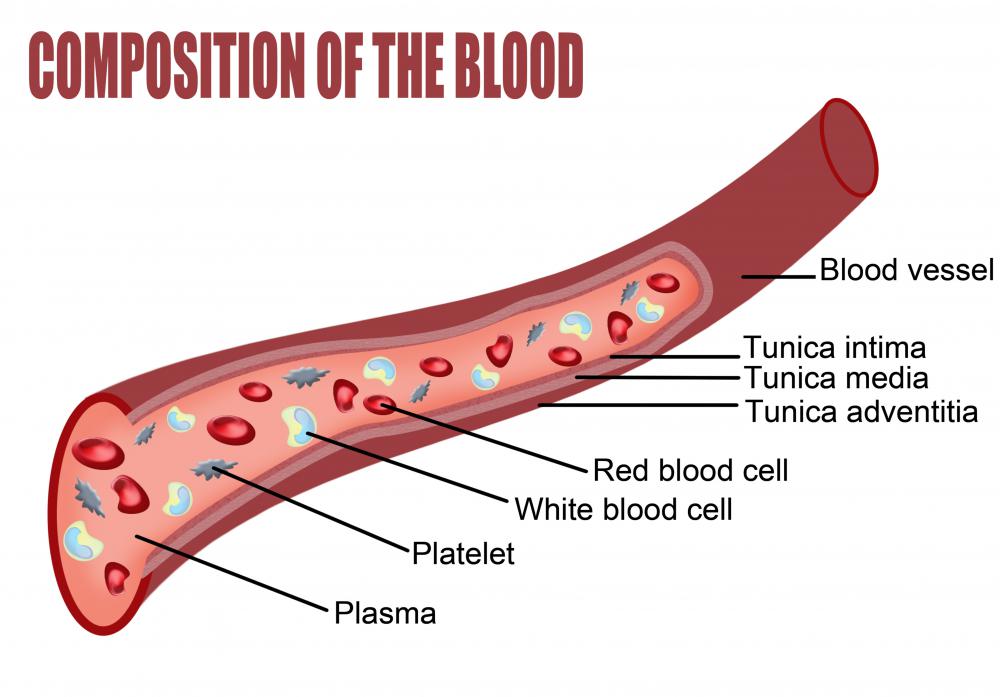At WiseGEEK, we're committed to delivering accurate, trustworthy information. Our expert-authored content is rigorously fact-checked and sourced from credible authorities. Discover how we uphold the highest standards in providing you with reliable knowledge.
What is a Blood Bank Technology Specialist?
A blood bank technology specialist is a scientist who collects and analyzes donated blood to be used for transfusions. He or she is responsible for making sure blood donations are high quality, free of disease, and safe for transfusion into certain patients. A blood bank technology specialist uses a number of complicated laboratory tools and testing techniques to determine the components and type of a blood sample. Many specialists assist physicians in actual blood transfusion procedures.
Donors must be thoroughly interviewed and examined before they are allowed to give blood. A blood bank technology specialist often performs these initial screenings and, when donors are deemed suitable, draw certain quantities of blood. The specialist then analyzes a sample to confirm blood type and to ensure that it is not tainted. Quality blood is labeled and carefully stored for use in transfusions. In some instances, a specialist may perform tests on the patient in need of the transfusion to make sure his or her system will be compatible and responsive to new blood.

Blood bank technology specialists use sophisticated laboratory equipment and computer technology to analyze blood. They may use microscopes and cell counters, for example, to determine the exact components of a sample. In some clinics, specialists are required to separate blood into its component parts, such as plasma, red blood cells and white blood cells. Specialists usually store data about blood samples in computer systems.

To work as a blood bank technology specialist, a person must typically obtain at least a bachelor's degree in medical technology from a four-year college or university, though many specialists choose to pursue master's degrees. In addition, a new specialist must complete one to two years of paid, formal training in a hospital or clinic, and pass a certification test. Trainees typically work as assistants to experienced specialists, helping them collect samples and learning about different laboratory techniques. In the United States, blood bank technology specialist certification is offered by the American Society for Clinical Pathology (ASCP). Most countries have organizations similar to the ASCP which administer certification exams to new specialists.

Most blood bank technology specialists work in hospitals and community donation centers. Some specialists work at private, independent laboratories, researching new and unfamiliar blood diseases. In addition, experienced specialists often find employment with research and development laboratories in institutions that manufacture new blood bank equipment. Those with advanced degrees might choose to work at universities, teaching medical technology courses and supervising laboratory research work.
AS FEATURED ON:
AS FEATURED ON:


















Discussion Comments
One of my favorite episodes of MASH concerns blood donation. A patient comes in and insists that they don't give him any "black blood".
The doctors are annoyed by his racism and play a trick on him, pretending that he did receive "black blood" and was slowly turning black himself.
In the end they explained to him that blood doesn't have a color, and furthermore that the man who developed the blood donation process and original blood bank technology was black. His intelligence and hard work has saved many lives over the years.
@KoiwiGal - I think it's definitely good that they screen the blood so heavily. What annoys me though, is that they are still quite over reactive to the point of bigotry in some places.
I know my local blood center won't accept blood from any man who has had sex with a man in the last seven years.
Now, I know back in the day they didn't know much about AIDs and it's difficult to deny that it is more prevalent in the gay community. But there are many gay men who are in committed relationships and who have had regular STD screenings (and the documentation to prove it. Why shouldn't they be able to donate?
Seven years is far too long. All the diseases they are looking for are detectable well before then and the blood goes through additional screening with these specialists in blood bank technology.
So, they are basically turning away potential blood donors because of outdated policies.
It might seem like a lot of schooling just to analyze blood samples, but this job is a really important one.
If a single batch of contaminated blood goes through it can infect up to six people (who might themselves infect others, since they have no way of knowing they might be infected with a disease).
This happened a few times in the past, particularly with AIDs cases before people realized how important the screening process and blood donation requirements are and made it a lot stricter than it used to be.
Every time I've gone to donate blood the people have been super nice, so I think that a cheerful personality is probably another requirement if you are thinking about trying for this job.
Post your comments